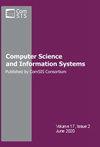PARSAT: Fuzzy logic for adaptive spatial ability training in an augmented reality system
IF 1.2
4区 计算机科学
Q4 COMPUTER SCIENCE, INFORMATION SYSTEMS
引用次数: 1
Abstract
Personalized training systems and augmented reality are two of the most promising educational technologies since they could enhance engineering students? spatial ability. Prior research has examined the benefits of the integration of augmented reality in increasing students? motivation and enhancing their spatial skills. However, based on the review of the literature, current training systems do not provide adaptivity to students? individual needs. In view of the above, this paper presents a novel adaptive augmented reality training system, which teaches the knowledge domain of technical drawing. The novelty of the proposed system is that it proposes using fuzzy sets to represent the students? knowledge levels more accurately in the adaptive augmented reality training system. The system determines the amount and the level of difficulty of the learning activities delivered to the students, based on their progress. The main contribution of the system is that it is student-centered, providing the students with an adaptive training experience. The evaluation of the system took place during the 2021-22 and 2022-23 winter semesters, and the results are very promising.增强现实系统中自适应空间能力训练的模糊逻辑
个性化培训系统和增强现实是两种最有前途的教育技术,因为它们可以提高工科学生的能力。空间能力。先前的研究已经检验了增强现实在提高学生学习能力方面的好处。激励和提高他们的空间技能。然而,根据文献综述,目前的培训体系并没有为学生提供适应性。个体的需要。鉴于此,本文提出了一种新的自适应增强现实培训系统,该系统对技术制图知识领域进行了教学。该系统的新颖之处在于,它提出使用模糊集来表示学生。在自适应增强现实训练系统中,知识层次更加准确。该系统根据学生的学习进度,决定向学生提供学习活动的数量和难度。该系统的主要贡献在于它以学生为中心,为学生提供适应性训练体验。该系统在2021-22学年和2022-23学年的冬季学期进行了评估,结果非常有希望。
本文章由计算机程序翻译,如有差异,请以英文原文为准。
求助全文
约1分钟内获得全文
求助全文
来源期刊

Computer Science and Information Systems
COMPUTER SCIENCE, INFORMATION SYSTEMS-COMPUTER SCIENCE, SOFTWARE ENGINEERING
CiteScore
2.30
自引率
21.40%
发文量
76
审稿时长
7.5 months
期刊介绍:
About the journal
Home page
Contact information
Aims and scope
Indexing information
Editorial policies
ComSIS consortium
Journal boards
Managing board
For authors
Information for contributors
Paper submission
Article submission through OJS
Copyright transfer form
Download section
For readers
Forthcoming articles
Current issue
Archive
Subscription
For reviewers
View and review submissions
News
Journal''s Facebook page
Call for special issue
New issue notification
Aims and scope
Computer Science and Information Systems (ComSIS) is an international refereed journal, published in Serbia. The objective of ComSIS is to communicate important research and development results in the areas of computer science, software engineering, and information systems.
 求助内容:
求助内容: 应助结果提醒方式:
应助结果提醒方式:


